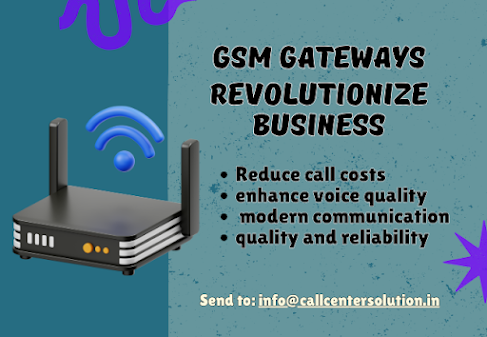How to Choose the Right GSM Gateway for Your Needs
Understand Your Communication Needs
The first step in choosing a GSM Gateway is to clearly define your communication objectives. Are you looking to reduce call costs for international dialing? Do you need a solution to handle high volumes of SMS messages? Or is your priority integrating mobile connectivity with an existing VoIP or PBX system? For instance, a call center might prioritize a gateway with multiple SIM slots to manage concurrent calls, while a small business might focus on basic voice routing. Identifying whether you need voice, SMS, or both services will narrow down your options.
Additionally, consider the expected call volume, geographic coverage (local or international), and whether you require advanced features like fraud detection or automated routing.
Evaluate Technical Compatibility
Many overlook scalability, but it remains vital for long-term success. A GSM Gateway that meets your current needs might become obsolete as your business grows. Assess the device’s capacity for SIM cards and concurrent calls.
For example, a 4-channel gateway can handle four simultaneous calls, while enterprise-grade models support dozens of channels. If your business anticipates expansion, opt for a modular gateway that allows adding more SIM slots or channels later. Additionally, consider software scalability. Some gateways offer advanced features like load balancing or failover routing, which become invaluable as traffic increases.
Test Usability and Management Features
A user-friendly interface simplifies configuration and monitoring. Look for gateways with intuitive web-based dashboards or compatibility with third-party management tools. Features like real-time call monitoring, SMS logging, and automated alerts enhance operational efficiency. Remote management capabilities are particularly valuable for businesses with distributed teams or multiple locations. If the gateway requires extensive technical expertise to operate, factor in training costs or the need for specialized IT staff.
Vendor Support and Warranty
Even the best hardware can encounter issues. Choose a vendor known for responsive customer support and comprehensive warranties. Check if they offer 24/7 technical assistance, on-site repairs, or replacement services. A strong warranty (e.g., two to three years) reflects the manufacturer’s confidence in their product. Additionally, explore online communities or forums where users discuss their experiences with specific brands or models. Reliable vendor support minimizes downtime and ensures quick resolution of technical problems.
Conclusion
Choosing the right GSM Gateway Requires a balance of technical knowledge, foresight, and practical evaluation. By understanding your communication needs, verifying compatibility, prioritizing scalability, and factoring in costs and security, you can select a device that enhances efficiency without overspending. Remember to partner with reputable vendors and plan for future technological shifts. A well-chosen GSM Gateway not only streamlines communication but also becomes a strategic asset for your business’s growth and resilience.
Read Also: How Does a PRI Gateway Improve Call Quality and Connectivity?







Comments
Post a Comment